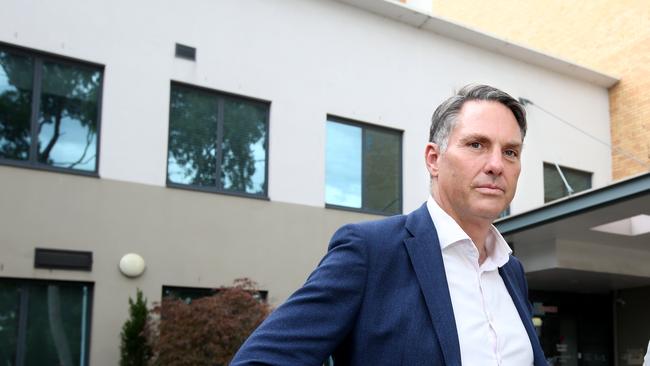
For decades, both major parties, whether in opposition or in government, have watched a succession of blunders but have rarely been critical of Australia’s defence equipment strategies. Detailed interrogation of defence officials in parliamentary committees is usually left to crossbenchers like Rex Patrick.
Compounding the problem, the three coalition ministries after Kevin Rudd have had five defence ministers in seven years. Richard Marles’ decision to raise the submarine mess could lead to lengthy contempt of parliament hearings because sworn statements by senior defence officials appear to contradict each other.
As readers will know, for more than a decade I have been critical of the defence equipment bungles. Marles broke the tradition with this statement:
“The future submarines are more critical than ever given our increasingly challenging strategic circumstances. This is the largest defence procurement in our nation’s history and is of immense strategic importance. The government’s mismanagement of this acquisition has seriously eroded public confidence.
“A decade has been lost, local content claims have proven hollow and it hasn’t been upfront about the costs. It is staggering that the acquisition costs have risen from around $50bn in 2015 to nearly $90bn today through a slight of hand with accounting language and Linda Reynolds (the defence minister) doesn’t think Australian taxpayers deserve a serious explanation.”
Marles has chosen as his battlegrounds the conflicting cost statements and local content rather than the submarine technology.
It is clear that Marles is concerned by the changes to the submarine agreement that was originally reached with French negotiator Marie-Pierre de Bailliencourt. Whether those changes boosted the contract price is not known.
However, the contract price inconsistencies in the sworn evidence of defence officials clearly require explanation.
When in late 2015 the then secretary of defence Dennis Richardson and his deputy Peter Baxter appeared before the foreign affairs, defence and trade committee they were crystal-clear that the $50bn price tag for the submarine was on an “out-turn cost” basis. Senator Stephen Conroy asked what “out-turn” means and Richardson explained “it is inflation into the 2040s”.
Baxter added: “The last of the submarines is likely to be built in the 2040s.” Then Richardson elaborated: “For the last of the submarines — if they were built, say, in the early 2040s — it is the out-turn cost of what the submarines would cost in 2040 dollars.” Nothing could be clearer. The Richardson-Baxter evidence was unambiguous.
A few months later the then prime minister Malcolm Turnbull and then defence minister Marise Payne released the 2016 Defence White Paper with all costs in “out-turn dollars”.
Fast forward to three years to May 2018 and the man in charge of the project, Rear Admiral Greg Sammut, swears before Senate Estimates that the $50bn contract price was not — again, not — set on an “out turn” basis but was in fact on constant price basis: based on 2015-16 dollars which would rise with inflation.
In affect that statement boosted the “out-turn” cost from $50bn to close to $90bn. Clearly either somebody has misled the parliament or there is some mysterious explanation that reconciles the two apparently conflicting statements.
What makes the apparent conflict so dangerous for the nation is the size and complexity of the project, plus the fact we are betting that lead-acid batteries will still be a relevant submarine technology in 2040 and beyond. Given there is no consensus from officials about what the original agreement said, one can only imagine the likely subsequent difficulties in progressing this submarine project. Then add the fact that the Americans didn’t want us to enter this contract and it was against a naval board recommendation.
We had to enter two separate contracts: one with the French to design the submarine and one with the Americans to install the combat system. The Americans do not trust the security of the French so we have the submarine designer and the combat system provider who do not talk directly to each other.
At the same time the French appear to have never wanted to honour the de Bailliencourt local content pledges.
This is a defence issue where the parliament must intervene in the national interest, which makes the Marles statement so important. If that intervention is via senate committees then Richardson, Baxter and Sammut must each be questioned, not just for half a day but for two or three days if required, so that we get to the bottom of what has taken place. On the Coalition side, Senator Jim Molan knows far more about defence and strategies than most Coalition people in the parliament.
Richard Marles wants an explanation and via that explanation he will learn a great deal more about how we make defence decisions and what the future path should be. Australia will then gain, for the first time in many years, an opposition defence spokesman with detailed knowledge about what is actually going on defence.
The nation wins.








Labor’s deputy leader and spokesman for defence Richard Marles has broken a decades-old party truce and decided it is time to start seeking the real truth about Australia’s submarine morass. Marles’ action will inevitably transform the defence equipment debate.